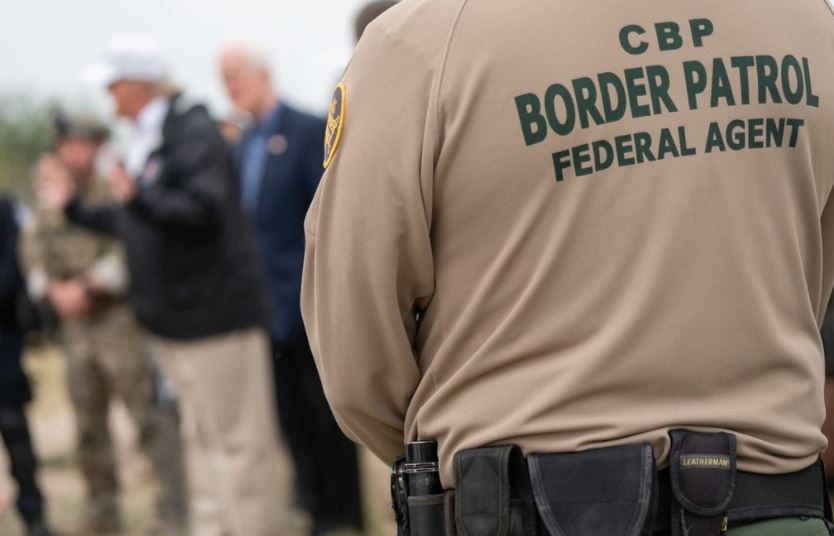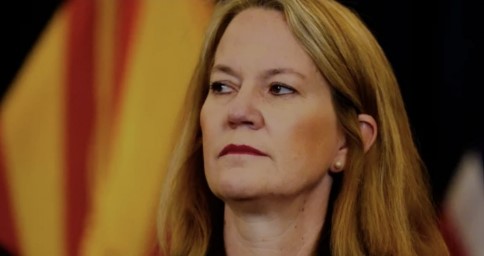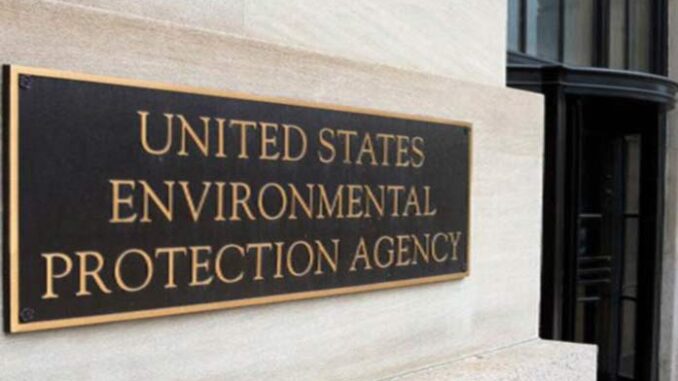
by Matthew Holloway | Dec 17, 2024 | News
By Matthew Holloway |
A new report from the Center for American Institutions (CAI) at Arizona State University (ASU) has revealed that faith-based organizations are playing an “integral role” in addressing housing and food insecurity, addiction, at-risk youth, and more.
The report on “Religion, Charity and American Life,” is entitled A Thousand Points of Light Still Shine and was compiled with survey and research data from the CAI with feedback from faith leaders Raymond Leo Cardinal Burke, Dr. R. Albert Mohler, Jr., and Rabbi Pinchas Allouche.
In a press release, CAI wrote, “While often overlooked, volunteers from congregations of many faiths feed, clothe, and support our communities, according to the report. They collect and distribute food. They help with rent and utilities and point people to additional organizations that can assist. The authors of the study said it can be seen as a call to action and a reminder of the necessity to affirm the religious liberty necessary to make way for these institutions to do this life-sustaining support and outreach.”
The report noted that in the metro Phoenix area, Jewish Family and Children’s Services is known for providing treatment for illnesses, mental health problems, and drug abuse. It also assists people with food insecurity, offering nutritional assistance and even dental referrals. The Living Streams Church’s food pantry of Central Phoenix feeds approximately 5,000 people per year working Mondays through Thursdays. The Catholic St. Vincent de Paul conferences, small groups of volunteers within local parishes, conduct food deliveries to needy people within their parish boundaries.
A Jewish temple located in Phoenix doesn’t operate a food pantry but rather its members contribute their time and money to two nearby pre-existing food pantries. The CAI observed that other congregations, such as a Disciples of Christ Church in Phoenix, also contributed to nearby pantries.
Looking further, the report found that 86% of food pantries in Detroit, Michigan, that are found on findhelp.org are faith-based with many housed-on church property and run by volunteer staff. CAI also found that four of the seven “best” drug addiction treatment centers in the Detroit metro area, as reported by Addiction Resource, are also faith-based.
The report notes that the role played by faith-based groups in combating food insecurity is crucial.
“Since the COVID-19 pandemic, a growing number of Americans are caught in a squeeze. As food prices skyrocketed, along with other basic needs like transportation, housing, and energy, SNAP (Supplemental Nutrition Assistance Program, or food stamps) did not keep up. In a 2023 survey conducted by Feeding America, the largest American charity focused on food insecurity, 65 percent of food banks reported increasing demand. Food pantries, meanwhile, found that food inflation meant their contributions did not go as far as they did pre-pandemic, even as lines at their doors grew longer.”
The study also drew attention to the dangers of the heat to the homeless during Arizona summer finding, “Summer in Phoenix can be deadly without access to water and cooling. Alongside public hydration and cooling stations, faith-based groups go to homeless camps and distribute water and necessities. For example, St. Vincent de Paul has trucks that make the rounds to places where homeless people congregate to hand out water, food, and supplies. On a smaller scale, Sunnyslope Ministries of Hope distributes water in central Phoenix most every summer evening, along with personal care items and shoes. Also, in Phoenix, Young Single Adult groups from The Church of Jesus Christ of Latter-day Saints (LDS) congregations take part in distributing aid to the homeless.”
Rabbi Pinchas Allouche, Founding Rabbi of Congregation Beth Tefillah, also contributed to the report writing, “Faith-based organizations are the lifeblood of America’s moral fabric, calling each of us to fulfill our God-given responsibility to heal the world. Through acts of goodness and kindness, we can restore faith in humanity and remind the world that light can dispel even the thickest darkness. This call to action can propel readers to reflect on how they, too, can contribute to making the world more divine through small yet powerful acts of goodness and kindness. It will also highlight the importance of treating each other with respect, as God’s children who are all part of God’s human family.”
The commission made four key recommendations based upon the collected data:
- Faith-based organizations need to do a better job of informing the general public of these programs. On a community level, faith-based organizations should consider creating a collective website to report on their activities.
- Greater media attention needs to be driven by individual churches, synagogues, temples, and faith-based charities to newspapers, the media, and social media about the stories of individuals who have benefited from their programs. Americans love success stories.
- Media itself should give more attention to the importance of faith-based charities and programs in their communities.
- Americans need a better understanding of religious liberty, as embodied in the First Amendment. This should begin in the classroom. State legislators and school boards should require that time be given in the classroom to the foundational concept of religious liberty in American life.
Professor Donald Critchlow, Director of the Center for American Institutions at ASU, explained, “Religion is under unprecedented attack on multiple fronts, with growing secularization, declining attendance, and hate-filled attacks on people of faith. And yet, as this report illustrates in vivid detail, volunteers from various religious congregations are still showing up for those most in need in their local communities.”
He added, “The irony is that while faith-based organizations are more active in our communities today than at any time in modern American history, these good works coincide with a rise in hate crimes.”
Matthew Holloway is a senior reporter for AZ Free News. Follow him on X for his latest stories, or email tips to Matthew@azfreenews.com.

by Matthew Holloway | Dec 16, 2024 | Economy, News
By Matthew Holloway |
The Maricopa County Board of Supervisors’ Public Safety Funding Committee (PSFC) presented its findings last week and has recommended that it pursue a 20-year extension of the existing voter-approved tax rate of 1/5th of a cent, set to expire in 2027. It also recommended the expansion of various partnerships to address the funding needs of adult and juvenile correctional facilities, correctional healthcare, and other county programs.
According to a press release from the Board of Supervisors, Chairman Jack Sellers said, “Providing for public safety is a core function of our government, and how we fund those efforts should be transparent and open to public feedback. We established the PSFC to ensure a wide range of views are considered as we determine how to prioritize and pay for evolving public safety needs. I’m grateful for the committee’s diligent work and look forward to a thorough review of their recommendations.”
The committee, established in January, conducted a series of public hearings, toured existing jail facilities, and interviewed several figures within the system before brining its recommendations for long-term funding and other changes to several established policies.
The Board of Supervisors largely appeared to concur with the recommendation to extend the funding, with Supervisors Clint Hickman, Bill Gates, and Steve Gallardo voicing support. Hickman said, “The Jail Excise Tax brings in about $300 million in revenue per year and has been an effective way of funding our public safety needs as the county grows, at a low burden to the individual taxpayer.”
He added, “I agree with the committee’s recommendation that an extension of the tax, at the current rate, is the best way to make sure we continue to live in a safe community where people can thrive economically.”
The 165-page report detailed policy recommendations touching “Reentry, Community Services and Coordination, Programming and Courts, Capital, and Data and Long-Term Initiatives.”
The Committee explained:
“In the first category, they suggested pursuing partnerships for crime prevention and reentry, engaging with the state on Medicaid waivers for pre-trial and pre-release individuals, and engaging in efforts to strengthen the behavioral health system.
The second category focused on maintaining funding for probation and diversion programs, upholding treatment standards, coordinating Initial Appearance Hearings with the City of Phoenix, and discussing juvenile placement policies.”
In addition it recommended replacing outdated facilities, improving the county’s Intake, Transfer and Release facility, enhancing security at the Durango campus, and addressing shortages in the county’s correction workforce.
Vice Chairman Thomas Galvin noted, “The PSFC engaged with residents and key stakeholders honestly and openly over the past year, and now with their recommendations, we can move forward in a united manner to keep our streets safe and support our law enforcement officers.
Chaired by John Lewis, the former mayor of Gilbert and CEO of East Valley Partnership, the committee is composed of nine community members from fields ranging from law enforcement, correctional health, criminal justice, government, and business.
As noted by KTAR News, the Board of Supervisors may agree with the extension of the Jail Excise Tax, and could lobby for it, but it has very little choice in the matter. Ultimately Maricopa County cannot place it on the ballot. That power falls to the Arizona Legislature and the sitting governor to pass and sign into law.
Given the past disconnect between the Republican-dominated Arizona Legislature and Democrat Governor Katie Hobbs, it is uncertain how successful any effort to extend an existing tax would be, or how well received it would be by the voters.
Matthew Holloway is a senior reporter for AZ Free News. Follow him on X for his latest stories, or email tips to Matthew@azfreenews.com.

by Matthew Holloway | Dec 15, 2024 | News
By Matthew Holloway |
John R. Modlin, the Chief Patrol Agent (CPA) of the U.S. Border Patrol Tucson Sector released a statement on Tuesday announcing that the Douglas Station Field Training Unit tracked, located, and apprehended three illegal immigrants west of Douglas, AZ. They were the most recent of over 1,600 illegal immigrants who were captured in the first week of December.
According to the posts on X and Facebook, “Douglas Station Field Training Unit tracked 3 migrants west of Douglas, AZ. As agents approached, 1 migrant ran, leaving behind a Guatemalan woman and her 5-year-old child. With the assistance of a USBP #K9, agents were able to apprehend the 17-year-old Mexican national.”
The 17-year-old Mexican national who fled was pictured in the post wearing carpet-like slips over his shoes designed to disguise his tracks, as well as desert camouflage leading to speculation that he may have been guiding the Guatemalan woman and child.
The apprehensions represented the third major interception in a matter of three days. Modlin’s office also posted imagery from the capture of five illegal immigrants from Guatemala and Mexico near SR-90 on December 1.
Another five illegal immigrants were arrested on Dec. 1st after the driver of the vehicle they were being smuggled in failed to yield on SR-85. Modlin’s office noted that “the occupants attempted to abscond into the desert but were quickly apprehended.”
In a post to X on Dec. 9, Border Patrol Chief Jason Owens shared footage of a dramatic helicopter rescue from the Arizona desert explaining, “USBP agents in Tucson Sector, with local sheriff’s air support, rescued an injured migrant in Arizona’s rugged mountains. BORSTAR agents provided critical medical care before airlifting the individual to safety. This highlights the harsh journey migrants face and the heroic efforts of our agents.”
In reviewing the week, as of December 6th, Modlin reported his sector had made 1,600 apprehensions, leading to 171 federal criminal cases. They also seized 19 lbs. of methamphetamine, 9 lbs. of cocaine, 6.7 lbs. of Heroin, and $2,032. They stopped 18 human smuggling events and 7 Narcotics Events. And they made six rescues.
Matthew Holloway is a senior reporter for AZ Free News. Follow him on X for his latest stories, or email tips to Matthew@azfreenews.com.

by Matthew Holloway | Dec 15, 2024 | News
By Matthew Holloway |
The State of Arizona has engaged in legal battle against a Saudi Arabian firm: Fondomonte Arizona, LLC., on allegations that the agribusiness has violated public nuisance law by aggressively pumping groundwater from the Ranegras Plain Basin of La Paz County. The move could signal a split between Democrats Attorney General Kris Mayes and Governor Katie Hobbs whose chief campaign advisor is partnered with a lobbyist for the Saudi company.
Announcing the lawsuit on Wednesday, Mayes said the company, which enjoys a strong lobbying connection to Democrat Gov. Katie Hobbs, does not have “the right to endanger an entire community’s health and safety for its own gain,” according to KJZZ. She added, “The law is clear on that point.”
Mayes said the consequences are immediate and visible. She cited that the firm has operated in the Ranegras basin since 2014 and has several wells that pump up to 4,000 gallons of water per minute. She also shared that in 2023, it used approximately 31,196-acre feet of water.
“Fondomonte came to Arizona to extract water at an unreasonable and excessive rate because doing so was banned in its home country – another arid desert with limited water,” the lawsuit claims. “Fondomonte is taking advantage of Arizona’s failure to protect its precious groundwater resource.”
The Saudi firm called Mayes’ allegations “totally unfounded,” according to spokesman Barrett Marson.
“We believe the attorney general is setting a dangerous precedent attempting to penalize farming and the wider agricultural industry within the state of Arizona. The company complies with all state and local regulations.”
The amount of water drawn by the alfalfa farms is reportedly enough to serve approximately 93,000 single family homes. Neighboring wells serving homes less than a mile away went dry about five years ago. Mayes noted that the well for the Friendship Baptist Church a little under two miles away ran dry in 2017.
“The land is literally sinking in La Paz County with as much as 9.8 inches of subsidence documented in the immediate vicinity of Fondomonte’s farms,” she told reporters adding that under the nuisance law, action can be taken. However the AG pointed to what she described as the Arizona legislature’s failure to regulate the water use of corporate farms outside active management areas. “They have been completely AWOL when it comes to addressing rural Arizona’s water needs and these situations where people are being harmed,” she said, according to the outlet.
According to the Associated Press, Mayes said, “While laws regulating groundwater pumping could have prevented this situation, the legislature’s inaction has allowed the crisis to grow. When the legislature fails to protect our most basic resources, the attorney general must step in.”
Republican La Paz County Supervisor Holly Irwin praised the move, while castigating Arizona lawmakers for failing to weigh in. “That is why we are seeing foreign companies come over to these areas, purchase land and pump water out so that they can supplement their alfalfa and send it back home,” said Holly.
“Attorney General Kris Mayes is the first one who has stepped up and done anything about it. I know my constituents will be thrilled that somebody’s actually paying attention to the real problems here, which are wells that are going dry, the land subsidence that we’ve seen, and the concern that we have for the future of our basin.”
In March, Fondomonte was reportedly stripped of the ability to use Arizona’s water resources when the State Land Department inspected the company’s land leases in western Arizona’s Butler Valley and determined they were no longer irrigating in the area. The company allegedly pumped over 5.3 billion gallons of groundwater in Butler Valley throughout 2022, stopping after Gov. Hobbs canceled their leases on its thousands of acres of land in October according to The Center Square.
Mayes said in a statement at the time, “The Arizona Attorney General’s Office worked closely with Governor Hobbs’ administration on these inspections, which confirmed what we have suspected — Fondomonte has been in violation of its leases for many years.”
However, she was critical of the delayed reaction. “And while today’s announcement is commendable, it should have been taken by state government much earlier. The failure to act sooner underscores the need for greater oversight and accountability in the management of our state’s most vital resource.”
As reported by AZ Free News in July, Chad Guzmán, who co-manages the lobbying firm Fillmore Strategy with Hobbs’ senior campaign advisor, Joe Wolf, is now working as a lobbyist for Fondomonte. The move came after Fondomente enlisted Guzmán’s company, Signal Peak Consulting, according to a Fondomonte spokesman. Wolf referred to the development as a “nothingburger” at the time, telling the Arizona Republic the he is no longer paid by the Hobbs campaign and has no business dealings with Fondomonte.
Speculation is rife that Mayes could seek to challenge Hobbs in the 2026 Democrat Primary for the Governor’s office, though the Arizona Capitol Times reported in November that Mayes said she is looking at running for a second term as AG in 2026. Stacey Barchenger, state politics reporter at the Arizona Republic, confirmed to KJZZ’s Laren Gilger a day later that she had reached out to Mayes who indicated she intends to seek re-election as Attorney General. Despite these assurances, the outlet noted that the groundwater controversy has proven to be a high-profile dispute between the two Democrats.
With Hobbs’ favorability ratings critically low, the divide on groundwater, an issue that often garners bipartisan support for regulation, could prove to be a wedge issue in 2026 that places Mayes in a position to challenge Hobbs on equal footing, despite the Governor’s hefty $3 million war chest.
Matthew Holloway is a senior reporter for AZ Free News. Follow him on X for his latest stories, or email tips to Matthew@azfreenews.com.

by Matthew Holloway | Dec 15, 2024 | News
By Matthew Holloway |
Following intervention from Congresswoman Debbie Lesko (R-AZ-08), the EPA has reportedly decided not to move forward with its decision to declare Maricopa County’s nonattainment status of ozone National Ambient Air Quality Standards (NAAQS) as ‘serious.’ Lesko publicly expressed concern that the change was motivated by the “upcoming administration change,” and not the law.
According to a press release from Lesko’s office, the Environmental Protection Agency (EPA) Administrator agreed to reconsider the decision to “prematurely reclassify” Maricopa County’s status of nonattainment as ‘serious.’
In her letter to the EPA, as previously reported by AZ Free News, Lesko warned, “If the EPA continues its expedited schedule in a rush to make their reclassification effective before the Trump Administration takes office, it will negatively impact Arizona and national security. The Taiwan Semiconductor Manufacturing Company (TSMC) was just awarded $6.6 Billion in CHIPS Act funding. This action by the EPA could jeopardize that funding and makes absolutely no sense.”
In her letter, Rep. Lesko expressed concern that the reclassification was not based upon law or environmental science but on politics. She wrote, “The reason for this change is not clear to me, but I am concerned tat this action was taken based upon the political reality of the upcoming administration change.”
She explained, “The law states that there is a 180-day window from August 3, 2024 for redesignation. The expedited timeline is set prior to the 180-day deadline.” She added, “It is crucial that the EPA and other federal agencies keep a consistent and stable regulatory environment where they do not expedite or change rulings based on the upcoming changes in executive power.”
As noted in our previous coverage, the arbitrary redesignation would lower Maricopa County’s emissions threshold from the current 100 tons to 50 tons for major sources of nitrogen oxides and volatile organic compounds, with said adjustments jeopardizing the operations of TSMC in Phoenix.
“TMSC’s new plant requires an air quality permit to proceed. The current major source threshold of 100 tons would allow TSMC to proceed without needing to acquire emission reduction credits (ERCs),” said Lesko.
“However, a redesignation to serious nonattainment would impose the 50-ton threshold, which is currently unfeasible due to the shortage of available ERCs, thus potentially delaying or halting this key project.”
Congresswoman Lesko posted to X on Friday to announce the result of her appeal to the EPA. She wrote, “Great news! Following my letter to the EPA sent earlier this week and after working with Senator Kelly and the governor’s office, our office has now heard from the EPA they will no longer move forward with the decision to prematurely reclassify Maricopa County to “serious” nonattainment status for their ozone National Ambient Air Quality Standards (NAAQS). This is wonderful news!”
Matthew Holloway is a senior reporter for AZ Free News. Follow him on X for his latest stories, or email tips to Matthew@azfreenews.com.





